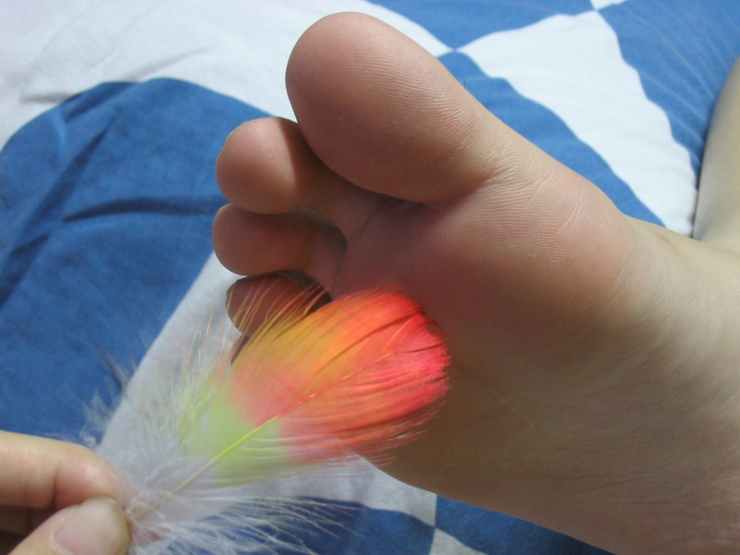One of the most surprising mysteries revealed: This is why you can’t tickle yourself. You will never believe it!
A new study clarifies one of the small and big mysteries that intrigue us most. It may sound strange but behind tickling there is real scientific research, to be exact This mechanism involves many nerve centers in our body. A lot of research has dealt with this strange phenomenon and some really interesting novelties have come out that explain how tickling works and also why self-tickling fails to make us laugh.
Tickling has been a subject of study since the ancient Greeks. actually Socrates, Aristotle and Plato wondered Why tickling triggered uncontrollable laughter in some people, while it didn’t in others. Many scientists have asked this question over time. In this interesting new experiment, six pairs of volunteers were selected and divided into two groups tickle and one victim. Everything was recorded with video cameras. The pairs were formed by people who already knew each other before the test and therefore had a fair amount of physical intimacy with each other.
Anxiety and discomfort prevent tickling
This is something very important because previous studies have already shown this Anxiety and shyness can prevent ticklish sensitivity. Tickling involves the nervous system and stimulates nerve fibers associated with both touch and pain. Psychologically, tickling can also be a great social bond but for it to play this role both people need to be comfortable with the situation. Scientists have actually confirmed how tickling is fun and makes you laugh when there is an intimate relationship between the two people and when it is in a friendly context.

instead of If there is no intimacy with whom to tickle Or if you’re in a context that can misjudge sudden laughter, the brain immediately blocks the tickle. Some studies have even confirmed that if tickling is performed against the will of the person concerned or if tickling is abused, there can be negative and severe reactions that can lead to enuresis, unconsciousness or vomiting.
What’s happened
This experiment is really interesting because in the first test the tickler was behind the victim and had to act unawares. In this case, the first reactions arrived after 300 ms and after 200 ms the first sounds arrived. In the second test, the tickler repeated this procedure however At the same time, the victims tickled themselves.

The result was that the self-tickling made the victim not only laugh, but laugh as well It even underestimated the impact of it being inflicted on the other person. It’s amazing that not only do we laugh if we tickle ourselves but if someone else does it at the same time, we don’t even laugh at what the other person did to us.
Unpredictability is what holds us back
According to scientists, this comes from the fact that tickling makes us laugh due to a cognitive error in the brain. Basically What makes us laugh is the fact that we don’t know where we’re going to touch. It is precisely this unpredictability that triggers the laugh-out-loud uncontrollable reaction, but if we tickle ourselves, this cannot happen, on the contrary, self-tickling will also prevent any tickling by someone else.
Basically, according to scientists, when we pet ourselves, our brain resets sensitivity. But these mechanisms, however, Not quite clear yet Thus, even if we learn to know the stars millions or billions of light years away, we still do not know exactly how that banal and funny interaction that has always accompanied adults and children works.

“Infuriatingly humble alcohol fanatic. Unapologetic beer practitioner. Analyst.”









Leave a Reply